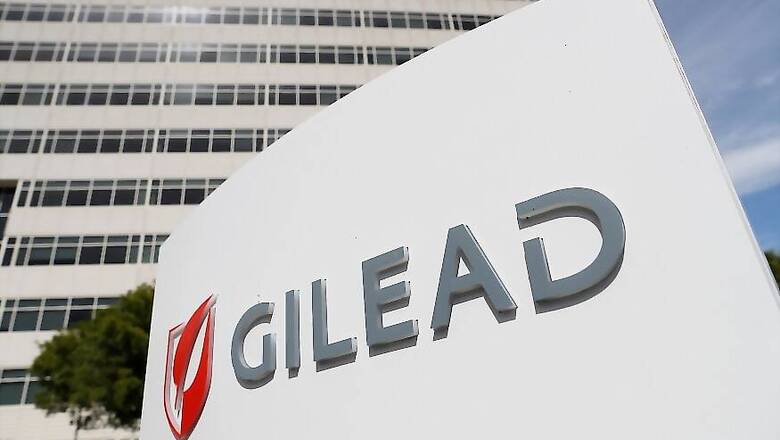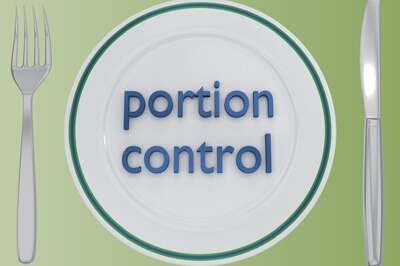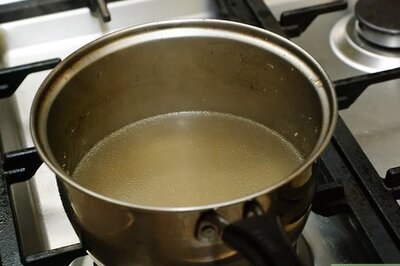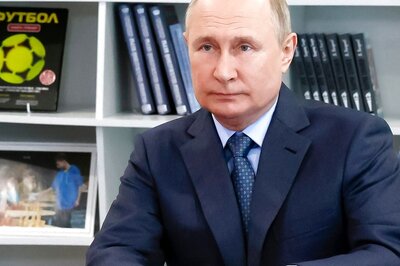
views
A closely-watched Gilead Sciences Inc experimental antiviral drug failed to help patients with severe Covid-19 in a clinical trial conducted in China, but the drugmaker said the findings were inconclusive because the study was terminated early.
Gilead shares closed down 4.3% after the data was inadvertently released and first reported by the Financial Times. It comes days after another report detailed rapid recovery in fever and respiratory symptoms in some patients with COVID-19 - the sometimes deadly respiratory illness caused by the coronavirus - who were treated with remdesivir at the University of Chicago Medicine hospital.
Interest in Gilead's remdesivir has been high as there are currently no approved treatments or preventive vaccines for Covid, and doctors are desperate for anything that might alter the course of the disease that attacks the lungs and can shut down other organs in extremely severe cases.
In the Chinese trial remdesivir, given by intravenous infusion, failed to improve patients' condition or reduce the pathogen's presence in the bloodstream, according to draft documents published accidentally by the World Health Organization (WHO).
But details were thin and suggested limitations in interpreting the data that has not yet been fully reviewed.
A screenshot of the WHO posting, captured by the medical news website STAT before it was taken down, said the trial enrolled 237 patients with 158 receiving remdesivir compared with 79 who got a placebo.
The rate of death was similar at 13.9% for remdesivir versus 12.8% in the control group.
"It's still not that large of a study and therefore the statistics coming out of the trial aren't exactly robust," Mizuho analyst Salim Syed said in a research note.
Gilead in a statement said the WHO posting included inappropriate characterizations of the study, which was terminated early due to low enrollment and, as a result, cannot be used to make statistically meaningful conclusions.
"The study results are inconclusive, though trends in the data suggest a potential benefit for remdesivir, particularly among patients treated early in disease," the company said without providing details to back up that assertion.
Doctors have speculated that an antiviral drug like remdesivir would likely be most effective when administered as early as possible in the course of the disease as it is designed to help keep the virus from replicating in the blood.
"You can put out a campfire, but once it becomes a wildfire it's hard to control," said Dr Kevin Grimes, an infectious disease specialist at Houston Methodist Hospital who was not involved in the study.
The WHO said the draft manuscript is undergoing peer review before it will be officially released.
David Katz, chief investment officer at Matrix Asset Advisors, which owns Gilead shares, noted that multiple clinical studies remained ongoing for remdesivir and said, “we would not be selling (the stock) into weakness today.”
Gilead is awaiting results of a trial of remdesivir, which previously failed as an Ebola treatment, in 400 patients hospitalized with severe COVID-19, with data expected later this month.
A separate trial in China testing the drug in patients with more moderate symptoms last week was also suspended due to a lack of eligible patients.
Brad Loncar, whose Loncar Investments runs a cancer immunotherapy ETF, was not ready to draw conclusions from the latest China data.
"Just as it was too much of a reach to be optimistic about positive anecdotes we have heard, I think it’s too pessimistic to write it off based on this (incomplete) data."




















Comments
0 comment